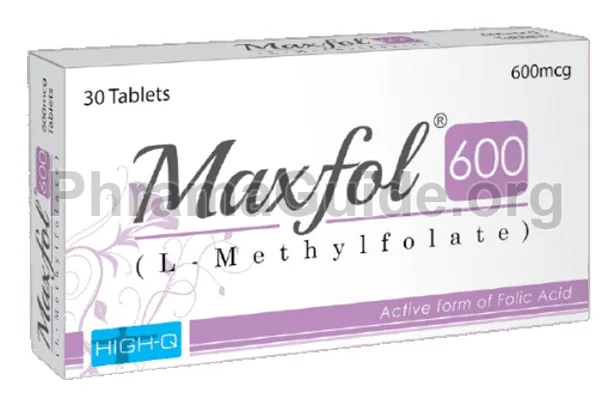Maxfol is commonly used to address folate deficiencies or to support various health conditions. Like any medication or supplement, Maxfol can have side effects. Common and less common side effects may include.
Common Side Effects
- Gastrointestinal Issues: Nausea, stomach cramps, and diarrhea can occur, especially at higher doses.
- Headache: Some individuals may experience mild to moderate headaches.
- Sleep Disturbances: Maxfol may affect sleep patterns in some people.
- Irritability: A small percentage of users of Maxfol may experience mood changes or irritability.
- Allergic Reactions: Although rare, allergic reactions like skin rashes or itching can occur.
Less Common Side Effects
- Anxiety and Agitation: Some individuals may experience increased anxiety or restlessness.
- Overstimulation: In rare cases, Maxfol can lead to feelings of overstimulation or nervousness.
- Insomnia: Sleep disturbances may become more severe in some individuals.
- Increased Heart Rate: A rapid heartbeat (tachycardia) is a less common side effect of Maxfol.
- Skin Sensitivity: Increased sensitivity to sunlight or photosensitivity can occur.
- Neuropathy: Peripheral neuropathy (nerve damage) is a rare side effect, particularly with high doses of Maxfol.
- Changes in Taste: Some people may experience an altered or metallic taste.
- Muscle Weakness: Uncommon muscle weakness or myopathy has been reported with the use of Maxfol.
- Respiratory Issues: Rare cases of shortness of breath or difficulty breathing have been documented associated with Maxfol.
- Rare and Severe Allergic Reactions: Although exceedingly rare, severe allergic reactions, such as anaphylaxis, have been reported with the use of Maxfol.

What is Maxfol?
Maxfol is one of the leading brands of L-Methylfolate , manufactured and marketed by High-Q International.
Maxfol : Available Formulations and Strengths
Presently, Maxfol is available in Tablets Form
Maxfol Tablets : 400mcg, and 600mcg strengths
What Are The Possible Drug Interactions of Maxfol?
- Anticonvulsants: Some anticonvulsant medications, such as phenytoin and valproic acid, can reduce the effectiveness of Maxfol. This can be a concern, especially for individuals with epilepsy.
- Methotrexate: Methotrexate is a medication used to treat various conditions, including cancer and autoimmune diseases. Maxfol should not be taken with methotrexate because it can interfere with the medication’s mechanism of action.
- Antibiotics: Certain antibiotics, such as trimethoprim-sulfamethoxazole (Bactrim), may inhibit the action of folate, potentially reducing the effectiveness of Maxfol.
- Metformin: Maxfol might enhance the glucose-lowering effects of metformin in some individuals. This can be beneficial for people with diabetes but should be closely monitored by a healthcare provider.
- Levodopa: Levodopa, used to treat Parkinson’s disease, may have its effects altered when taken with Maxfol. Close monitoring is necessary.
- Antacids: Some antacids that contain aluminum or magnesium can decrease the absorption of Maxfol. To avoid this interaction, take Maxfol at least 2 hours before or after antacids.
- Cholestyramine and Colesevelam: These medications used to lower cholesterol can interfere with the absorption of Maxfol. It’s advisable to take Maxfol at least 4 hours before or 2 hours after these drugs.
- Warfarin: Maxfol may have a mild interaction with warfarin, an anticoagulant. It can increase the risk of bleeding. Monitoring and dosage adjustments may be necessary.
- Bile Acid Sequestrants: Medications like cholestyramine and colestipol, used to treat high cholesterol, can interfere with Maxfol absorption.

Leave A Comment